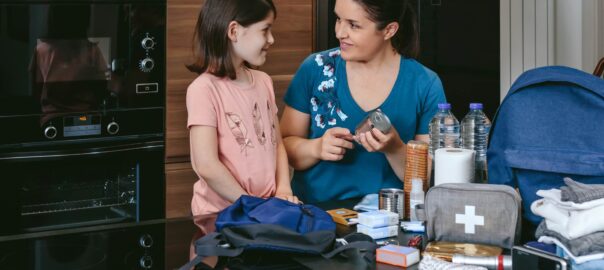This post is meant to empower you so you can take proactive steps toward building a preparedness plan that is specific to your area and your family needs. The goal is for you to make sure you are equipped to handle unexpected situations no matter where you live. When you start now, you're investing in your safety, reducing stress, and increasing your peace of mind.
Why You Need to Be Ready
If you live in a bustling city or densely populated area chances are on a day-to-day basis it feels like you have everything you need. Shopping is convenient and plentiful, entertainment and activities are nearby, and you probably have good access to medical care. In an emergency situation, however, things can be quite different. If there is a crisis of some sort, such as a natural disaster or a major accident, or even some kind of a shutdown situation, emergency services may be stretched thin, as responders prioritize those with the highest need. This post looks at why having a personal level preparedness plan is vital and how you can start today.
Understanding the Challenges
When you live in a densely populated area, such as the suburbs, with lots of people, an emergency can strain community resources. Emergency services, such as firefighters and paramedics, may be busy helping others, which will create longer wait times for help. They may also need to handle dangerous situations such as fallen power lines or broken water mains before assisting others with some sort of urgent need.
Why Build a Preparedness Plan?
When you have a preparedness plan, it means you are able to take care of yourself or family members until help arrives. It may also mean that you can be helpful for a friend or neighbor who is experiencing an emergency. Preparedness might mean having enough food, water, medical supplies, and basic first aid awareness to get you through the situation until trained help can arrive. Plus there are times when knowing what to do can help you stay safe.
Being prepared and aware of how to respond in an emergency can help to reduce fear, stress, and anxiety. Instead of worrying, you can focus on staying safe and helping others.
How to Get Started
- Make a Plan: Have that conversation with your family about where to meet if you can't go home, or how to contact each other if phone lines are down. It may seem awkward or uncomfortable to bring it up, but this is a form of self-care and self-reliance that should not be overlooked.
- Create an Emergency Supplies Kit: Keep supplies like water, non-perishable food, a flashlight, and a first-aid kit in a safe place you can reach easily. You can easily get started with the Ten Tips For Emergency Preparedness Class (soon to open! Bookmark this page to stay updated)
- Stay Informed: Every emergency is different and each area of the country experiences different things. Learn what types of emergencies are common in your area, what to do to prepare for that type of situation, and sign up for alerts from your local authorities.
Conclusion
Emergency preparedness isn’t just for extreme situations—it's about being ready for anything that might happen. Living in a city means relying on yourself and your community when help might take longer to arrive. By starting now, you're taking an important step towards ensuring your safety and that of those around you.
Remember, being prepared is a responsibility we all share in keeping our communities safe and resilient.


